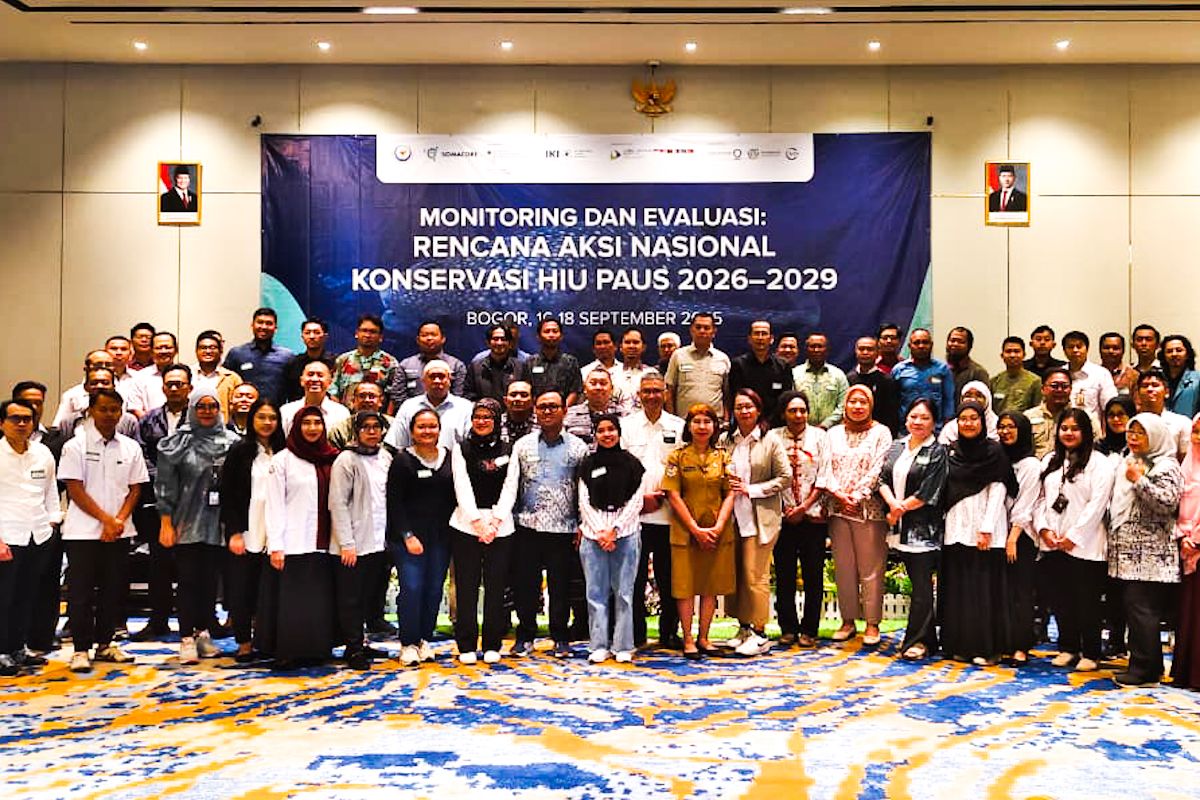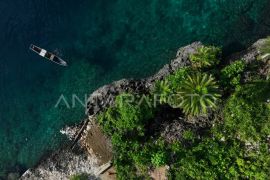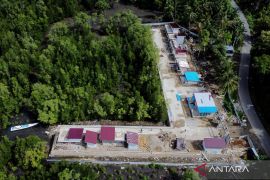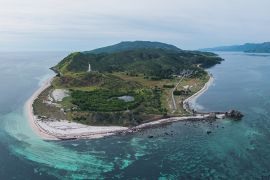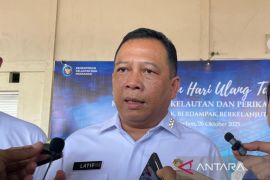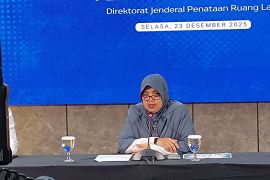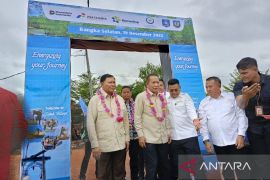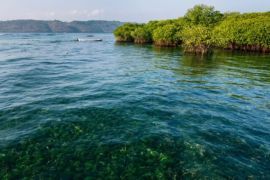Indonesia’s Ministry of Marine Affairs and Fisheries said that protecting whale sharks is not only about conserving an endangered species but also vital for maintaining healthy marine ecosystems and ensuring sustainable “blue food” security.
“Whale shark protection is not only about species conservation, but also about the health of marine ecosystems and blue food security,” Sarmintohadi, Director of Species and Genetic Conservation at the ministry, said in a statement in Jakarta on Sunday.
Whale sharks are fully protected under Indonesian law, listed on the International Union for Conservation of Nature (IUCN) Red List, and included in the Convention on International Trade in Endangered Species of Wild Fauna and Flora (CITES) appendices.
Sarmintohadi said that the ministry is strengthening conservation governance by reviewing the 2021–2025 Whale Shark National Action Plan (RAN) to ensure the sustainability of the world’s largest fish.
The review emphasizes stricter standards for whale shark tourism management and stronger capacity to mitigate stranding incidents, both of which will be priorities in the upcoming 2026–2029 action plan.
The current RAN, set under Ministerial Decree No. 16/2022, has provided a roadmap for whale shark protection and non-extractive utilization. But challenges remain, from limited emergency response capacity when sharks strand to tourism practices that are not fully sustainable, he added.
Although the ministry issued technical guidelines for whale shark tourism in 2020, field implementation has fallen short, with poorly managed activities posing risks to both animals and visitors.
“Wildlife-friendly, sustainable tourism standards and stronger response to stranding incidents will be the main focus of the 2026–2029 RAN,” Sarmintohadi said.
The evaluation was carried out with support from Konservasi Indonesia (KI) and the Coral Triangle Initiative on Coral Reefs, Fisheries, and Food Security (CTI-CFF) during a forum in Bogor on Sept. 16–18, which also discussed strategies for the next conservation phase.
Earlier, Marine Affairs and Fisheries Minister Sakti Wahyu Trenggono underscored the importance of stronger marine conservation, improved stranding response, and sustainable tourism management to maintain ecological balance while advancing Indonesia’s blue economy agenda.
Related news: Ministry, partners develop new whale shark conservation strategy
Related news: Indonesia urges joint action to conserve Coral Triangle
Translator: Muhammad Harianto, Martha Herlinawati Simanjuntak
Editor: Primayanti
Copyright © ANTARA 2025
